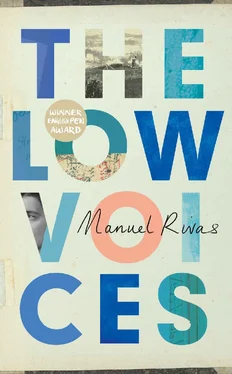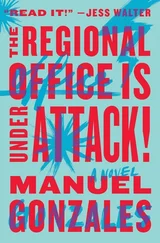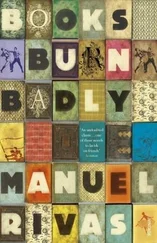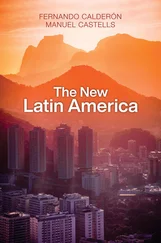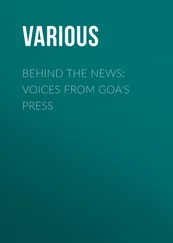Manuel Rivas - The Low Voices
Здесь есть возможность читать онлайн «Manuel Rivas - The Low Voices» весь текст электронной книги совершенно бесплатно (целиком полную версию без сокращений). В некоторых случаях можно слушать аудио, скачать через торрент в формате fb2 и присутствует краткое содержание. Год выпуска: 2016, Издательство: Harvill Secker, Жанр: Современная проза, на английском языке. Описание произведения, (предисловие) а так же отзывы посетителей доступны на портале библиотеки ЛибКат.
- Название:The Low Voices
- Автор:
- Издательство:Harvill Secker
- Жанр:
- Год:2016
- ISBN:нет данных
- Рейтинг книги:5 / 5. Голосов: 1
-
Избранное:Добавить в избранное
- Отзывы:
-
Ваша оценка:
- 100
- 1
- 2
- 3
- 4
- 5
The Low Voices: краткое содержание, описание и аннотация
Предлагаем к чтению аннотацию, описание, краткое содержание или предисловие (зависит от того, что написал сам автор книги «The Low Voices»). Если вы не нашли необходимую информацию о книге — напишите в комментариях, мы постараемся отыскать её.
A brilliant coming-of-age novel from one of Spain’s greatest storytellers,
is a humorous and philosophical take on memory, belonging, and the nature of storytelling itself.
The Low Voices — читать онлайн бесплатно полную книгу (весь текст) целиком
Ниже представлен текст книги, разбитый по страницам. Система сохранения места последней прочитанной страницы, позволяет с удобством читать онлайн бесплатно книгу «The Low Voices», без необходимости каждый раз заново искать на чём Вы остановились. Поставьте закладку, и сможете в любой момент перейти на страницу, на которой закончили чтение.
Интервал:
Закладка:
20. A Job Where You Don’t Get Wet
‘SON, CAN’T YOU find yourself a job where you don’t get wet!’
Apart from attending the co-ed institute, I tried to prepare myself as well as I could to carry out my mother’s mandate. Among other things, I went to a typing school. There is a poem by Pedro Salinas in which he calls the keys ‘happy girls’. I felt that happiness the first day I sat down in front of the keyboard. My fingers were sluggish, they got the levers all mixed up, but everything changed when the typing tutor came up, positioned my fingers on the keys and pressed down to give them the necessary impetus, the gentle motive force that would propel the carriage and the walk of universal writing. To do this, she stood behind you, embraced your shoulders and took control of your hands to turn the fingers into well-informed, walking operatives. Hers was a corporal kind of speech in which words, fragrant skin and locks formed part of a unique language whose accent was on your fingertips. I never thought typing could be so erotic. My fingers picked up speed: light, happy and Bohemian. I was sorry not to progress to shorthand, but I had to find myself a job where I wouldn’t get wet.
The day I climbed the stairs to the offices of the Ideal Gallego , I didn’t know whether I wanted to be a journalist, only that I wanted to be a writer. At the time, I wrote verses, which I thought were poems, in among my maths numbers and equations. When the teacher came over, I would conceal the secret with my hands and body. The poem curled up like a hedgehog. But one day he discovered it, the poem, the open hedgehog. His reaction was to read it, his thick lenses surveying that strange creature, the surprised hedgehog, a poem among numbers. I was expecting a telling-off, not a verdict. But what he said was, ‘Why do they always write sad things?’ I cannot remember how sad it was, the poem, that hedgehog advancing with its own unanswered questions between rows of equations, but I do remember being taken aback by the way he used the plural to identify me. I wrote poems. I wrote sad poems. I belonged to a strange tribe that wrote sad poems. Perhaps the problem was in the nuance. I didn’t get around to explaining to him that the poem was sad, but the way I’d written it was happy. The hedgehog was learning how to type.
In the psychogeography of those times, there are other unforgettable places where the hedgehog uncurled. One was the library in San Carlos Gardens, in the Old City. It was a long way from Monelos, after class. I used to go there via the port, which I entered from A Palloza. The port was an open area back then. One could enjoy the most beautiful architecture: ships and cranes. The work of netters spinning and mending their large marine cobwebs. The boisterous voices of those returning alive from their combat in the Gran Sol. On the stage set of the sky, above the bay, the most exhilarating spectacle was the clouds of starlings sketching cartoons to confuse the birds of prey. Some of those clouds of starlings would alight in the circular San Carlos Gardens. As would the more or less sad poets among us. Not far from there, they opened the first pub in A Coruña: Dylan’s. Thanks to Carlos, the brave man who came up with the idea, this was a small establishment that dreamed towards the future like vinyl. A place of discovery. You could immerse yourself every day in the wilderness of music and people saying all the things one couldn’t say. It also belonged to the geography of the other place, where you heard things you’d never heard before. Even the unexpected. All that complicit music, the unending, runaway kiss with that mysterious girl, a bit cross-eyed and hoarse, merged with the startling power of María Callas in ‘La mamma morta’.
Sorridi e spera! Io son l’amore!
Dylan’s was the room of humanity. A nomadic home. Forward and back, from back to fore. A small place in the Old City, fighting bravely. Against fines. The sanctions that forced them to close for a while. Some afternoons, you would arrive and the door would be locked. Not a whisper. On the corner, the crooked silhouette of a secret policeman. Where had the songs gone? The dry leaves in San Carlos Gardens, drawing circles on the vinyl of the ground, in the wake of the cross-eyed girl.
‘Are you going?’
‘I have work to do. I mustn’t be late.’
‘Don’t go!’
I left. With my head down. The stigma of the accursed race. Work. I never saw her again.
Vivi ancora! Io son la vita!
I wanted to be a writer, but what kind of profession was that? Most of the writers I admired had earned a living on a newspaper. From Mark Twain to Graciliano Ramos, the Brazilian who wrote Barren Lives . Hey! Try not to quote so much. Don’t overdo the quotes. Learn to quote without inverted commas. Remember the time you attended a conference by a Famous Writer. He read his speech with a certain lack of enthusiasm. Someone from the public asked him which authors had influenced him most. He began to pluck names out of the air, with growing excitement: Shakespeare, Cervantes, the great English novel, the great Russian novel, the great French novel, Faulkner of course, not forgetting Valle-Inclán … The ironic mouth of literature sounds from the audience, ‘What fault is it of theirs that you write?’ In A Coruña, there was a strong tradition of throwing barbs. And people with a good aim, who were courageous. A recital by the leader of the Falangist poetry group Amanecer (Dawn) was interrupted at the crucial moment by a shout of ‘Another plate of squid!’
At the co-ed institute, we edited a magazine that ended up being clandestine. I interviewed heterodox mouths of local culture. One that led to another. The playwright Manuel Lourenzo, imprisoned in his youth; the musician Miro Casabella, grandson of a blind singer of ballads; the humorist and comics writer Chichi Campos, whose every panel was subversive … Many couldn’t be published, but they formed part of the freedom I carried with me. A casual coincidence, the hasty exit from a concert by Miro that hadn’t been approved by the governor, allowed me to meet Toño López Mariño. It was like meeting Bugs Bunny and Jack Kerouac at the same time. Toño had gone from the lesser seminary of Santiago to the Beat Generation in a single jump. He was one of the last to graduate from the school of journalism in Madrid and signed his chronicles with the initials WBS (Why Bother Signing). I told him my story, and he suggested I drop by the Ideal Gallego . This ancient journal of Catholic intransigence was going through a period of intense change, with a new director, Rafael González, from Andalusia. It wasn’t quite on a level with Combat . There was an old, very conservative guard on the staff, but there were others who subscribed to and practised principles and obligations of journalism like those espoused by Albert Camus. Not to lie. To confess what you do not know. To stand up against any kind of despotism, whatever the excuse … In short, not to dominate. Xosé Antón Gaciño, Luís Pita and Gabriel Plaza were new reference points in the world of Galician journalism. They were the ones who would occasionally be insulted on the stairs to the Ideal by extremists who called themselves the Warriors of Christ the King. The Ideal ’s new soul was altering the way information was presented, much to the chagrin of the Fascist authorities and reactionary clergy, who observed with increasing amazement how their old parish newsletter was sprouting wings. But that wasn’t all. The journalists contributed to the city’s cultural awakening. They organised the first serious retrospective of work by Urbano Lugrís, the seascape surrealist. When you see one of his pictures, you think the sea exists in part so that Lugrís could paint it. He used to say he painted in underwater workshops like a solitary companion of Captain Nemo. It was the summer of 1975. We were carrying the pictures one by one under our arms to the Association of Artists. He endured the drama of having to paint the inside of the Azor , Franco’s yacht, with sea motifs. He then got drunk. They say his best works were done in red wine on the marble tables of different taverns. I remember now. We’re walking in a line, each of us embracing a Lugrís, when we come across the extremists roaming free in María Pita Square. Armed with chains. They have no way of knowing what pictures we’re carrying under our arms, but we realise that to them they represent potential rubbish, degenerate art, simply because we’re the ones carrying them. Gabriel Plaza mutters, ‘Don’t look at them, keep going.’ I’m not a street brawler, I know this, but I feel a strange force emanating from the picture. I could protect it with my body to the end.
Читать дальшеИнтервал:
Закладка:
Похожие книги на «The Low Voices»
Представляем Вашему вниманию похожие книги на «The Low Voices» списком для выбора. Мы отобрали схожую по названию и смыслу литературу в надежде предоставить читателям больше вариантов отыскать новые, интересные, ещё непрочитанные произведения.
Обсуждение, отзывы о книге «The Low Voices» и просто собственные мнения читателей. Оставьте ваши комментарии, напишите, что Вы думаете о произведении, его смысле или главных героях. Укажите что конкретно понравилось, а что нет, и почему Вы так считаете.
